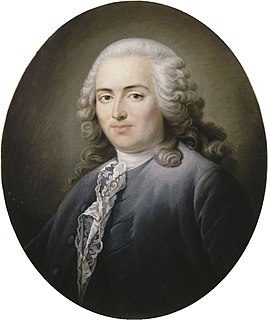A Quote by John Ruskin
Value is the life-giving power of anything; cost, the quantity of labour required to produce it; its price, the quantity of labourwhich its possessor will take in exchange for it.
Related Quotes
The value of any commodity, therefore, to the person who possesses it, and who means not to use or consume it himself, but to exchange it for other commodities, is equal to the quantity of labour which it enables him to purchase or command. Labour, therefore, is the real measure of the exchangeable value of all commodities. The real price of everything, what everything really costs to the man who wants to acquire it, is the toil and trouble of acquiring it.
If the land was divided among all the inhabitants of a country, so that each of them possessed precisely the quantity necessary for his support, and nothing more; it is evident that all of them being equal, no one would work for another. Neither would any of them possess wherewith to pay another for his labour, for each person having only such a quantity of land as was necessary to produce a subsistence, would consume all he should gather, and would not have any thing to give in exchange for the labour of others.
LABOUR, like all other things which are purchased and sold, and which may be increased or diminished in quantity, has its natural and its market price. The natural price of labour is that price which is necessary to enable the labourers, on with another, to subsist and to perpetuate their race, without either increase or diminution.
Desired substance, things, patterns, or sequences of experience that are in some sense "good" for the organism - items of diet, conditions of life, temperature, entertainment, sex, and so forth - are never such that more of the something is always better than less of the something. Rather, for all objects and experiences, there is a quantity that has optimum value. Above that quantity, the variable becomes toxic. To fall below that value is to be deprived.
Where there are few people, and a great quantity of fertile land, the power of the earth to afford a yearly increase of food may be compared to a great reservoir of water, supplied by a moderate stream. The faster population increases, the more help will be got to draw off the water, and consequently an increasing quantity will be taken every year. But the sooner, undoubtedly, will the reservoir be exhausted, and the streams only remain.
































